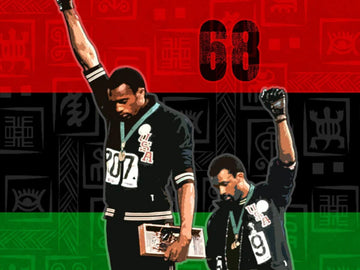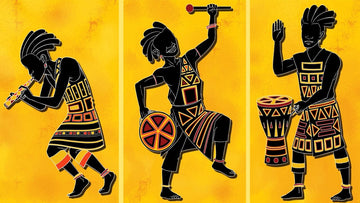
In a world where everyone, regardless of their religion, is obsessed with Christmas, let’s not forget about two other holy and deep-rooted festivals - Kwanzaa and Hanukkah.
Apart from Christmas, Kwanzaa and Hanukkah are major festivals for African Americans and Jews. Many individuals mistake Kwanzaa for Black Christmas or Hanukkah for Jewish Christmas. The fact is that the history, meaning, and celebration of these two festivals are quite different from the traditional Christmas day festivities.
Despite the distinctions, a sizable American population conducts two rituals in addition to Christmas. Typically, families in the United States will observe Hanukkah for eight days, Christmas for two days, and Kwanzaa a week later. The celebrations of Kwanzaa and Hanukkah are also the reason why people greet each other Happy Holidays rather than Merry Christmas throughout the holiday season.
You might wonder, what makes these festivals so special? Let's learn about the sacred meaning of Kwanzaa and Hanukkah with Melaninful blog!
Stay tuned!
Table of Contents
What is Hanukkah?
Hanukkah is a Jewish holiday that is widely observed by the Jewish community. Non-Jewish people also celebrate it. Hanukkah begins on 25 Kislev and concludes on 2 or 3 Tevet, according to the Jewish calendar. People that celebrate Hanukkah engage in a variety of traditions. Lighting candles, on the other hand, is one of the most popular Hanukkah customs.
This event commemorates the recapture of Jerusalem in the second century BCE. It was reclaimed during the start of the Maccabean Revolt against the Seleucid Empire. Because of the traditions that the people observe and conduct, this event is also known as the festival of lights.
According to the Book of Maccabees, the legend of Hanukkah goes somewhat like this. When King Antiochus III the Great of Syria conquered Judah, he permitted the inhabitants to keep their customs and faith. However, in 175 BC, Antiochus IV Epiphanes, Antiochus III's son, invaded Judea, destroying their land and looting their temples.
Antiochus IV Epiphanes commanded the construction of a Zeus altar in the Second Temple and forbade anybody from practicing Judaism. A Jewish priest named Mattathias and his five sons staged a rebellion against the King. Following Mattathias' death, Judah, his final son, took over as leader. Their uprising was victorious by 165 BC, and Judah and his followers freed the Second Temple.
Following the temple's washing and purification, the people searched for pure olive oil to light the traditional Jewish candle or Menorah. They could only locate one sealed and pure flash, stamped with the High Priest's Seal. Because it took eight days to clean and purify the oil, there was insufficient oil to maintain the candle for that long. The oil, on the other hand, lasted eight days, which was seen as a miracle. This miracle is commemorated through the eight days of Hanukkah, as well as the burning of the candles for the eight nights.
During Hanukkah, customs include lighting candles each night, singing songs, reciting prayers, eating fried and dairy dishes, giving gifts, and playing a game called "dreidel." In Hebrew, the term "Hanukkah" literally means "dedication" or "to devote." There are numerous additional interpretations of the word's origin.
For eight days, people celebrate this holiday and find delight in completing the rites. People have the opportunity to spend meaningful time with their loved ones. This not only brings people together but also honors the religion's rich past. People love completing these traditions and consider this time of year to be joyful.
What is Kwanzaa?
Kwanzaa is an annual celebration observed in the United States. It is observed from the 26th of December to the 1st of January and is frequently combined with Christmas and New Year's. Maulana Karenga founded Kwanzaa in 1966, and it was first observed that year. Kwanzaa derives its name from the Swahili word "matunda ya kwanza," which means "first fruits of the harvest." This celebration honors the harvest customs practiced by people in many areas of Africa.
It is a celebration honoring the African-American community and assisting them in reconnecting with their African culture and historical roots. The celebration is entirely based on the many harvest rituals practiced throughout Africa. It is a multi-ethnic and cultural celebration. People share presents and celebrate their unity, creativity, faith, heritage, and culture.
People participate in many traditions during Kwanzaa, such as singing songs, dancing, classic African drumming, storytelling, and poetry recital, eating delicacies, and so on. People from Africa experienced prejudice, and Maulana Karenga established this holiday for black people to enjoy a celebration that is distinct from the festivals celebrated by the dominant society.
Although Karenga founded the festival as an alternative to other faiths, he immediately altered his mind, claiming that it is not meant to supplant any religion and that people may celebrate Kwanzaa alongside Christmas and other religious holidays. As a result, individuals do not need to be religious to enjoy this festival.
Kwanzaa is a seven-day celebration that commemorates seven principles. The concept to celebrate Kwanzaa is fixed by a few symbols with their own unique thoughts such as Kinara and Misumaa Saba (7 candles), Mkeka (African table mat pattern), Mazao (a bowl filled with fruits and nuts), Muhindi (Corn ears), Kikombe cha Umoja (The Cup of Sharing), Zawadi (Deep-rooted homemade gifts), a poster of the seven principles, and a black, red, and green flag.
The symbols were created to express the seven principles as follows:
- Umoja (Unity): To seek and preserve unity in one's family, community, nation, and race.
- Kujichagulia (Self-Determination): The ability to define, name, create for and speak for oneself.
- Ujima (Collective Work and Responsibility): To develop and sustain community together, as well as to take on and solve the issues of brothers and sisters.
- Ujamaa (Cooperative Economics): Creating and operating one's own stores, shops, and other enterprises to profit from them collectively.
- Nia (Purpose): To make community building and development a communal mission to return people to their traditional grandeur.
- Kuumba (Creativity): To constantly contribute as much as we can, in any way we can, to leave our community a better place than we found it.
- Imani (Faith): To believe in the justice and triumph of struggle with all of one's heart, parents, and leaders.

Seven Principles Of Kwanzaa Tapestry, Melaninful
Kwanzaa allows people to spend meaningful time with their loved ones. This not only brings people together but also honors the community's rich heritage. People love completing these rituals and consider this to be a joyful celebration.
Similarities
Although the two festivities are extremely distinct and originated from very different causes, there are some parallels between the two disciplines. Commitment is a fundamental and significant topic in both ceremonies. The characteristics of the concepts raised on these two occasions are likewise identical.
Let’s dig in!
Both Kwanzaa and Hanukkah are about bringing light into the world
They also feature symbolic forms of light and are celebrated for almost the same number of days - seven days from December 26 to January 1 for Kwanzaa, and eight nights for Hanukkah - generally beginning approximately a week before Christmas.

Photo taken by Josh Boot, licensed by Unsplash License
Jews light the menorah for eight days to commemorate their resistance to foreign tyrants who seized Jewish territory in Israel. African descendants celebrate Kwanzaa by lighting the kinara for 7 days to remind themselves about their origin, past, present, and future.
The kinara itself signifies the heritage of the African-American community. Each of the kinara's seven flames represents one of the seven Kwanzaa ideals. Three of the seven candles are red, signifying a fight through slavery, colonization, and modern-day persecution. Three are green, representing the land and an optimistic future. One is black, representing all people of African ancestry. This is also the color of the Kwanzaa flag, reflecting its African origins.
The menorah, which comprises eight different candles, is the main Hanukkah symbol and is frequently utilized. Every evening, light with just a little oil will be lit to memorialize the miracle from the desecrated Temple. The light of Hanukkah candles symbolizes illumination, faith, and hope for a better future.
Both Kwanzaa and Hanukkah share the same spiritual values
A sense of spirituality and connection to past, heritage, or ancestors is also shared by Kwanzaa and Hanukkah.

Photo taken by Marquise Kamanke, licensed by Unsplash License
Kwanzaa emblems include a candleholder and seven (7) candles, which reflect the African ancestors' roots and the seven (7) Kwanzaa basic values respectively. These seven (7) principles are intended to serve as a foundation and guide for the African diaspora to develop a strong, prosperous, and fulfilling life while remaining connected to their heritage. While not religious, the ideals of Kwanzaa are intended to create in persons a deep feeling of spirituality. Kwanzaa strives to foster spirituality in individuals so that they can gain self-confidence and establish their self-identity via a connection to their heritage.
Similarly, over the eight days of Hanukkah, there are taboos and rituals, feasts and prayers that commemorate the Jews' struggle for their recognition. Hanukkah is also a chance for Jews to reflect on the history of liberation, the force of hope, the deliberate togetherness of the community, and the miracles that maintain life.
For Black Jew, Kwanzaa and Hanukkah may have even more interesting intersections. The Maccabees banded together to revolt against tyranny, much as Blacks did as slaves and as activists for justice, equality, and human rights. Kwanzaa reminds people of the significance of preserving and nurturing community, as well as supporting one another, for our people to prosper economically and spiritually (ujamaa). Judaism's culture also promotes communal solidarity, financial independence, economic success, and budgetary discipline.

Photo taken by Matthew Spiteri, licensed by Unsplash License
Furthermore, giving (tzedakah) is a key value in Jewish culture since it guarantees that everyone does their share to make the world a better place. Kwanzaa emphasizes the spirit of humanity and generosity as well. Along with the Macabbeas battle, the black community's struggle is all about genuine liberty, and it inspires people to strive for freedom, equality, commercial feasibility, harmony, and love.
Both Kwanzaa and Hanukkah stand against tyranny and absorption
Christian Christmas may be the most prevalent festival, but it's not the default for everyone. As a multi-ethnic country, America is full of different cultures, communities, and beliefs that shouldn’t be assimilated.

Photo taken by Diana Simumpande, licensed by Unsplash License
Kwanzaa is seen as a cultural celebration that empowers African Americans by demonstrating that they, too, have a thriving culture and rich customs. Kwanzaa celebrates black people's intrinsic value as African Americans. Black individuals may connect to African culture by participating in Kwanzaa ceremonies. Similarly, in a culture preoccupied with Christmas, celebrating Hanukkah is a means to express values and beliefs other than Christianity. Like Kwanzaa and Christmas, it's high time to treasure the bonds with friends and family, respecting the preservation of the Jewish population and oppressing over-integration.
By celebrating these festivals, the remembrance of the community's uniqueness, as well as the ancestral heritage, will prevent these precious values from being disappeared.
Throw Yourself in The Heart of The Party
The world in which we humans dwell is extremely diversified and one-of-a-kind. People from many religions and communities living in different regions gave birth to many groups and religions. Each has its own way of celebrating heritage and holidays. On the other hand, several festivals are so popular that they are held regularly all over the world.
I hope you have acquired some fascinating facts about Kwanzaa and Hanukkah from this article. Remember that you may celebrate any occasion you desire, regardless of your skin color, gender, faith, or culture. If you are asked to a Kwanzaa or Hanukkah feast, do not hesitate to attend. That implies the host wholeheartedly treasures and cherishes you!
Enjoy festivals, these holidays are all about happiness and wealth.
Happy Hanukkah, Happy Kwanzaa!




